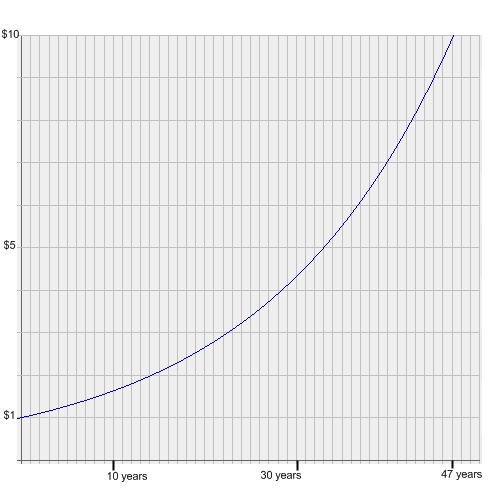There are many things I wish I did more of during graduate school. Though I do credit my graduate degree with giving me all the right opportunities and experiences to be successful throughout and after graduate school. In hindsight, there is always somethings you think about that could have enhanced your development. However, we never know what the outcome would have been in choosing differently in our past.
I’d just like to preface this article by stating that I do not regret not doing these things. Rather, I think these experiences could have helped to strengthen skills that are important in my future career path.
When starting out in your career (during graduate school), it is wise to say yes more often than you say no. This allows you diverse opportunities to gain valuable experience and find out what you actually want from graduate school. Everyone’s journey is different, therefore we must focus on what are the essential few things that will help us get from point A to point B. That being said, use graduate school as a time to say yes and learn what you actually find valuable for your future endeavors.
Support The Public Health Millennial on BuyMeACoffee
(Related: How My MPH Degree Helped Me Get a Fellowship)

Systems > Goals
If you’ve been reading my blog for a while, you’d know I had three goals from my Masters in Public Health (MPH) degree:
- Get a Fellowship
- Finish with a 4.0 GPA
- Get a job that paid at least $50,000
I was able to achieve 2 of these 3 goals for myself. And these gave me a better understanding of how to approach my graduate degree and the opportunities I said yes to.
I’ve now come to believe that though goals are important, you should focus on systems.
Goals give you direction, but systems give you the constant actionable steps you have to do to reach this goal and more. Goals are binary meaning you can either be successful or fail. The more you do in life, the more you realize that goals have less and less to do with your results, but rather system drive your overall results.
- If you are a student your goal may be to get a 4.0 GPA. Your system is how often you study, ensuring you are proactive in class, and receiving feedback from your professor on your progress on important topics.
A good way to look at systems vs goals is: if you took away the goal of getting a 4.0 GPA but still had a system to study and review your work constantly. Would you still be successful in achieving your goal? Probably, yes. This goes to show that systems are more important than goals for long-term success.
Think of a system as the habits you form to better make progress towards your goals. Check out this article by James Clear, author of Atomic Habits for more on systems vs goals.
What I would have changed
Though my goals helped me to achieve success in graduate school. If I had focused on systems, I think I would have been able to do more than just strive for my goals.
Instead of focusing on the 4.0 GPA, I should have focused on setting up a consistent study habit. I should have focused more on networking and putting in systems to find exciting fellowships, rather than just wanting to get one.
The thing that I would have changed is my mindset around goals. I did not get a 4.0 GPA, though I wasn’t really sad about this, I did feel a bit defeated. I wasn’t far off from a 4.0, but should have focused on the process if just to not feel defeated.
Use goals, but really try to develop the systematic habits that will help you achieve long-term success.
(Related: How To Setup A Effective LinkedIn Profile)
Do More Case Competitions
I took part in one case competition during my Masters of Public Health graduate degree. This was the University of Florida’s Global Health Case Competition.
Case competitions are competitions where you try to give “the best” solution to a real-world problem or case. This usually occurs on a team with 2-4 other people where you all have different degrees, skill sets and/or education level. There is usually a set time before you have to present on your solution – this can vary from 24 hours to a month.
I think it’s important to realize though it is a competition, it’s not necessarily about winning but rather what you can get from the process. Case competitions provide a unique environment to develop and learn while trying to solve real-world problems. They really test you to incorporate all the skills you have learnt.
Some reasons I think case competitions are good
- Collaboration
You are put on teams with people with vastly different skillsets, knowledge, and experience. The teamwork that is required to do well in a case competition comes from the collaboration and input from all teammates to solve the issue at hand. - Brainstorm real-world issues
When you are trying to solve real-world issues. It is important to learn about what strategies are currently being tried to solve the problem you are facing as you don’t want to repeat real-world solutions. On the other hand, you want to research what solutions have been tried before without success. You really have to understand the real world implications around the issue to strategize to solve the problem. - Challenge outside of classroom
Case competitions are a great way to challenge yourself outside of the classroom environment. It truly offers a unique, fast-paced environment to learn and develop important real-world skills. What better place to test your skills, knowledge and team work? - Forced to think creatively
The time crunch as well as the depth of the real-world issue really force you to think creatively. This is a competition so you are going to want to focus on innovative ideas that other teams aren’t thinking of. Which usually forces more creative solutions to the problem at hand. - Improve presentation skills
Not only do you have to solve a huge issue, you are going to have to present on your solution. You are going to learn a lot of valuable presentation and public speaking skills from the challenge of the quick turnaround for you to present.
And added bonus for case competitions is that there is usually a monetary prize for winners and the chance to advance to another round of the competition.
What I would have changed
If there is one thing I would have changed in my graduate degree, it would have been to take part in more than just one case competition. I think this truly would have helped to develop important career skills through these experiences.
There is no loss in taking part in case competitions, besides the slight sleep deprivation. The reward for taking part highly outweighs the cons. I would have cherished the opportunity to be able to work on several case competition teams during my graduate degree.
Additionally, case competitions are great resume booster.
Present at More Conferences
I had the pleasure of presenting at two conferences during my MPH career. The Florida Rural Health Association Conference and the Rotary District 6960 Conference. I did not apply for either of these conferences, but rather got invited to attend because of the work I did in an internship with the Florida Rural Health Association.
I wish I had the chance to submit an abstract for a competitive acceptance process. It is important to gain competence in writing and submitting abstracts for conferences. Even if you are not selected, you can truly take away a lot from this experience.
One reason I think I didn’t present at more conferences was because I was focused on the more practice-based side of my MPH rather than research. Nonetheless, the work experience I had, I think I could have submitted to present at conferences.
What I would have changed
I would have tried to frame the work I was doing at my internship or research for classes in a way that I would be able to submit an abstract for a conference. If you are more interested in a non-research focused career, I think it’s important to get career experience rather than research experience.
I can think back on several projects I worked on in my internships that I could have used to submit an abstract for a conference. Look at your work in this way and try to do this during your graduate degree. Doing this will also help you in interviews to better remember and explain what you worked on in projects.
(Related: How to Find An Out Of State Internship)

Taking Courses Outside My Degree
During my MPH, there was the chance to take courses outside of my specific degree field. A course that I looked at a lot but never pursued was a Geographic Information System (GIS) mapping course.
I should have taken this course while I did my MPH, since to this day it is something that I am looking to learn more about. Though my MPH degree did allow me to touch on varied subjects intersecting the public health field, there was definitely the opportunity to stretch a little bit more.
I will note that this would probably cost you extra money, so really give this some thought before trying to take classes outside your degree. But if there are skills that you think would boost your career in the long term, like GIS mapping, look into taking extra courses in them.
Alternatively, you could seek out to work with a professor on a project where you get to learn and utilize the skill (GIS mapping). This will also give you something to submit for conferences.
What I would have changed
Though I’m not sure if I would go back and learn GIS mapping during my MPH. Primarily because I’m not sure how much doing that would have taken away from the other skills and experiences I gained.
However, I do think I could have tried to learn more about GIS mapping by learning from a professor and working on independent projects. One of the best things about being a university student is the free access to programs that would cost you lot of money otherwise.
Take advantage of this and either try to work independently to build up this skill or look to other ways to develop the skill. This could prove to be a skill that sets you apart from your peers. As the job market gets more saturated, these differentiators will be important for landing new jobs.
Bonus
The bonus for what I wished I did more of during graduate school is investing. I wanted to put this here, as I start to begin to speak more about personal finance.
Though I did have a Stash investing account while I was in graduate school. Looking back I wish I had used a tool like M1 Finance of Robinhood. There were both good and bad to come from this.
The good:
- I got to learn about investing – Stash was a great beginners app to teach me about the lingo around investing and got me comfortable with the idea of investing
- I was learning the skill of saving to invest, although be it small amounts
- Saw the profit of me putting the time to learn this skill
The bad:
- Stash (or Acorns) are not good apps to invest with if you have small amounts of money. The $1 monthly fee really eats at the majority of your profits if you are investing small amounts. Use M1 Finance or Robinhood instead.
NOTE: It’s better to use Stash or Acorns than not use anything at all. - I took all my money out of the account to pay for something. If you learn one thing about investing it should be this: time in the market is hugely influential in your gains and compounding interest. I should have taken out the money and invest with M1 Finance
- I could have opened up a Roth IRA account and start investing for my future
What I would have changed
I do have to credit Stash for teaching me a lot about investing and getting me interested in the topic of growing my money. However, in hindsight I wish I had either kept investing, i.e. not sell my Stash account to buy something, but invest it into a Roth IRA retirement account, M1 Finance or Robinhood.
The best advice you can get on starting a retirement account would be to start it yesterday. You need time on your side when it comes to investing to get the best of compound interest – which is essentially letting your money and profits work for you.

As you can see in this graph, the sooner you start investing for retirement the better your outcome will be. Even if you’re not investing in a retirement account, investing into the stock market through a brokerage app can give your money the same result.
Start investing for your future. Investing small amounts today can reap huge benefits later in life.
(Related: Why You Need These 3 Hobbies in Life)
Conclusion
I would say that I have had an extremely beneficial graduate career. I have had the opportunities and experiences that really allowed me to be successful in my early career as a public health professional.
When you do reflect on life, you do see other paths that you could have taken. You should not regret the decision not to take these, but rather appreciate what you have learnt along your journey thus far. The road is long, and there is much more time to learn and many more experiences to have.
Don’t overexert yourself trying to do too much, figure out how much is enough. The opportunities you do say yes to, give them your all and see if they add value for your future success.
Is there anything you wish you did during your graduate degree?
(Disclaimer: I may get paid from affiliates links on this page)



